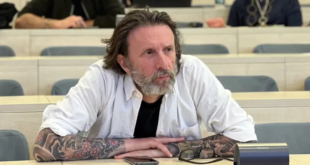 The Hungarian-US consortium Biotech Energy will build a bio-ethanol plant in Zrenjanin, Serbia. Scheduled for completion by the end of 2009, the project represents the largest-ever green field investment in Southeast Europe.
The Hungarian-US consortium Biotech Energy will build a bio-ethanol plant in Zrenjanin, Serbia. Scheduled for completion by the end of 2009, the project represents the largest-ever green field investment in Southeast Europe.
The state-of-the-art factory, to be the most technologically advanced of its kind in Europe, will process cereals into bio-ethanol, a clean fuel that can be utilised in combustion engines instead of oil and petrol.
Biotech Energy head Janos Racz and the town’s mayor, Goran Knezevic, signed the construction agreement last week. “This is the undertaking of the century for this part of Serbia, as it will mobilise most of the existing economic resources,” Knezevic said.
“We will invest a total of half a billion US dollars in Zrenjanin — to build the factory and infrastructure without which the factory cannot work. We will build a new port on the Begej River, which will connect [Serbia’s] road and railroad network with Western Europe, where we will export,” Racz said, adding that the factory will comply with the highest environmental standards.
The plant will require one million tonnes of wheat and 500,000 tonnes of corn a year, or almost 50% of Serbia’s annual output of both crops. In fact, investors are counting on raw materials from all of Southeast Europe. The factory is expected to churn out some 680,000 tonnes of bio-ethanol a year. It will also produce 400,000 tonnes of biological animal feed and 100,000 tonnes of environmentally friendly fertilisers.
Fuel obtained from energy crops is gaining ground globally, and many regard it as the energy imperative of the early 21st century. The EU has prescribed that non-fossil fuels must account for at least 2% of its diesel market this year. The mandatory market share will increase by 0.75 percentage points every year to 5.75% in 2010 and 20% in 2020.
On the other side of the Atlantic, the United States wants ethanol to account for 5% of its fuel market by 2012.
Up until now, the largest green field investment in Serbia has been Ball Packaging Europe’s aluminium can plant. The US-based Ball Corporation has invested 60m euros in the Serbian subsidiary, located in Belgrade’s suburbs. This year, some 50m euros worth of beverage cans manufactured at the plant were sold, with 80% exported to Europe. The investment has led to contracts worth 2.6m euros with local transportation companies.
 Eurasia Press & News
Eurasia Press & News



